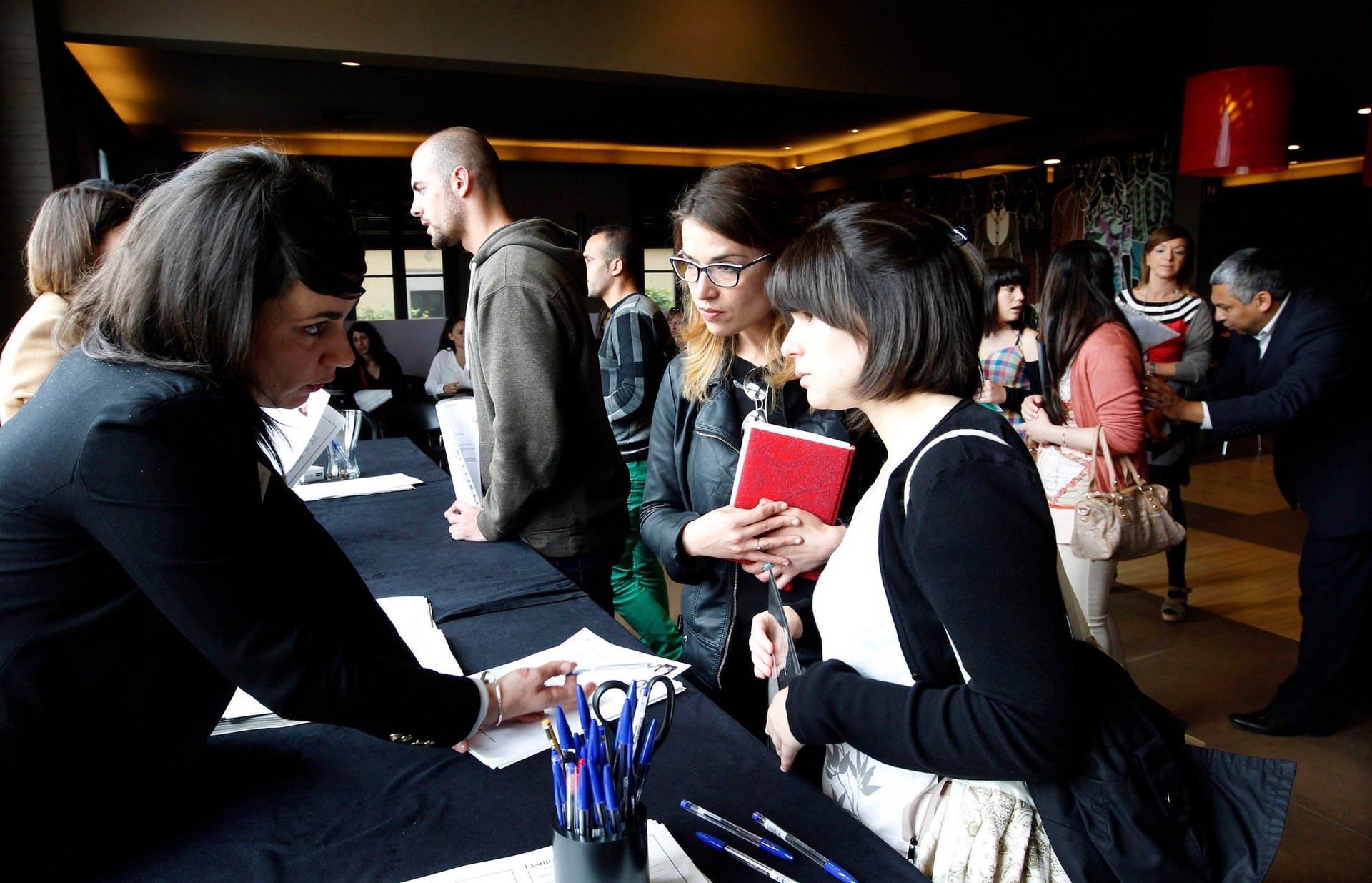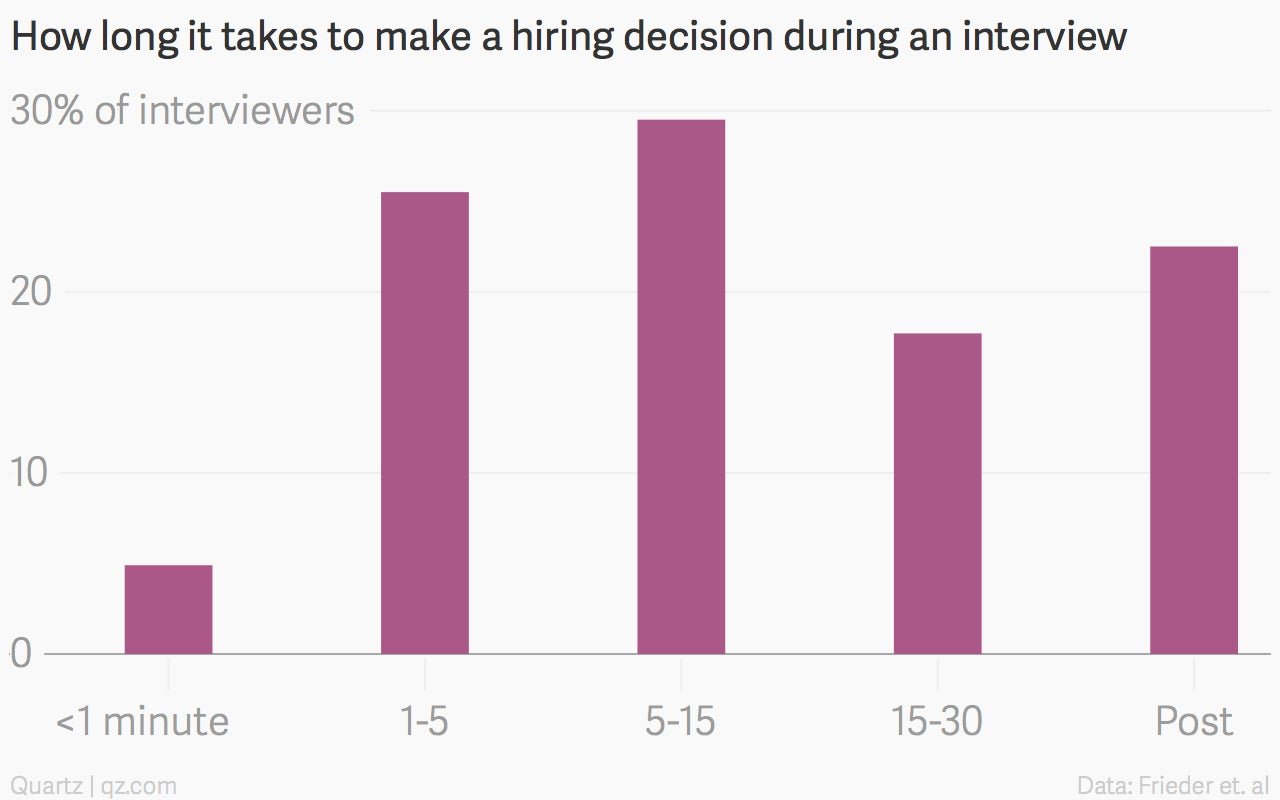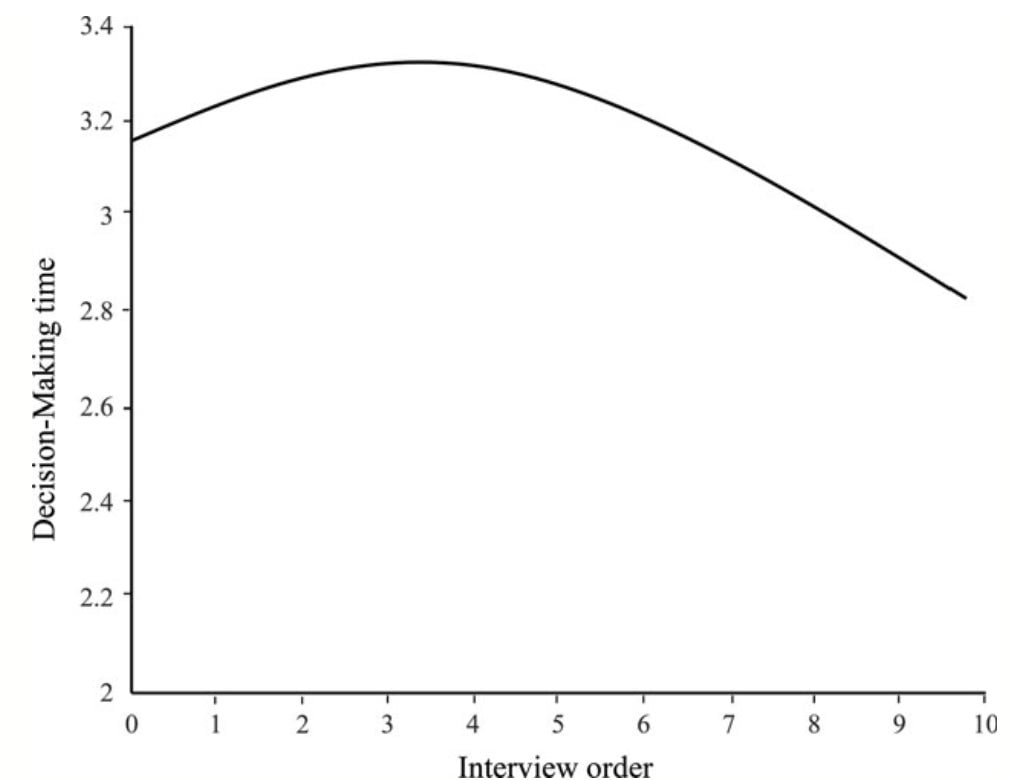Here’s how quickly interviewers decide whether or not to hire you
There’s a common belief that interviewers tend to make hiring decisions within a few minutes of meeting someone, often based on little more than a couple of inane details. That assumption is supported by research, but the studies were small and they were conducted in labs. So a team of researchers from Old Dominion, Florida State, and Clemson decided to take a look (paywall) at how things play out in real life.


There’s a common belief that interviewers tend to make hiring decisions within a few minutes of meeting someone, often based on little more than a couple of inane details. That assumption is supported by research, but the studies were small and they were conducted in labs. So a team of researchers from Old Dominion, Florida State, and Clemson decided to take a look (paywall) at how things play out in real life.
They found that people do in fact make snap judgements, but not as many—or quite as quickly—as we might think.
The study looked at more than 600 30 minute job interviews with college and graduate students. Many interviewers said they made rapid decisions about a candidate’s suitability: 4.9% decided within the first minute, and 25.5% decided within the first five minutes. Overall, 59.9% of decisions were made within the first 15 minutes, less than halfway through the scheduled interview time. Still, sliced another way, this new data shows that 69.6% of decisions occurred some time after the first five minutes, which runs counter to those earlier studies that found that most decisions are extremely early.
So, sure, it pays to make an amazing first impression. But a stumble isn’t necessarily a deal breaker.

Generally, a longer interview is better for both the applicant and the hiring company. The applicant gets more of a chance to break through subjective filters and demonstrate why they’d be a good candidate. The interviewer gets more information, and bases less of their decision on immediate, emotive impressions.
A number of things can affect how quickly or slowly interviewers judge. Interviewers who spent time trying to get to know the candidate through small talk tended to make quicker decisions, likely because personal questions tend to provoke more immediate and stronger reactions. The most confident and experienced interviewers also tended to decide more quickly.
Those who conducted structured interviews, asking each applicant the same series of job-related questions in the same order, or who used complex situational and past behavioral questions, and measured people on a consistent rubric tended to take more time to make their decisions.
The order you interview in also has a big effect. Being the fourth person interviewed seems to offer the best chance of having a substantive interview. Being interviewed late in the day after a long series of other people definitely hurts your chances of getting a full hearing. Each number on the Y axis corresponds to a five point rating scale corresponding to decision-making time. A score of “1” indicates a decision made in the first minute, a “2” is between the first and fifth minutes, and so on:

The data offers some important lessons for both people hiring and those looking to get hired. On the employer side, it seems worth investing in training people on how to structure interviews, and avoid excessive small talk.
Job seekers should attempt to avoid being the last in a long line of interviews. And they should be aware that the “small talk” portion of an interview can be just as important as the seemingly tougher job-related questions.